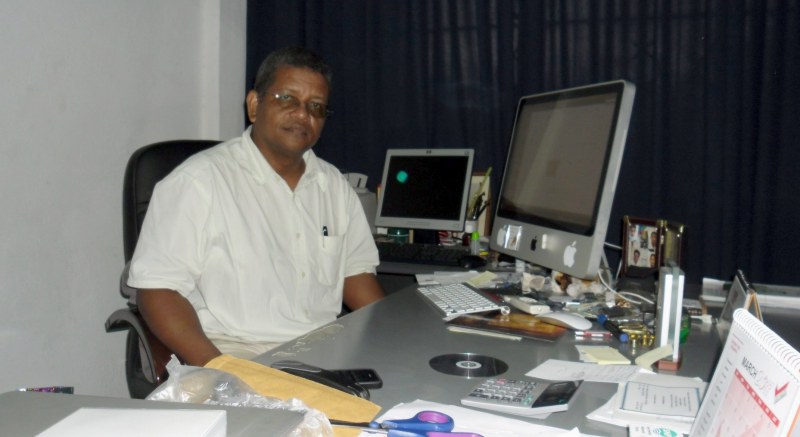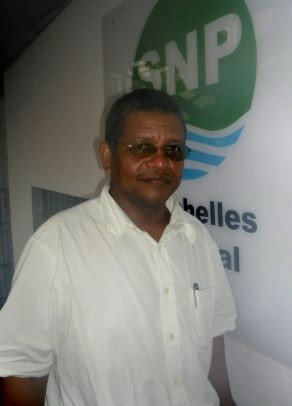 Seychelles opposition leader Wavel Ramkalawan in his office © Rainer Chr Hennig/afrol NewsPolitics | Society "No electoral violence in Seychelles"
Wavel Ramkalawan, leader of the island nation's main opposition party, the Seychelles National Party (SNP), in an interview with afrol News says he is confident to win the 19-21 May presidential elections in Seychelles and to be peacefully inaugurated as the nation's fourth President.
"It is still very much a dictatorship," he holds. "People are scared to open their mouth," risking not getting housing or their children getting scholarships if they belong to the opposition, according to Mr Ramkalawan. "For an 18-year-old to apply for a government job, he needs to go through 'security clearing', which happens at State House. In interviews, they ask who you are, what you vote, who your friends are and so on," he explains, adding that this of course could be intimidating. One of the gravest problems for Seychelles' imperfect democracy is the biased press, Mr Ramkalawan points out. State broadcasters and the country's main daily newspaper, 'The Nation', are mere organs for the government - something Foreign Minister Jean-Paul Adam confirmed to afrol News. The SNP has already presented a list of concerns to election observers that are monitoring the Seychellois elections. These include poor opposition access to the press, intimidation of voters and longer campaigning periods for the ruling party than for the opposition. Nevertheless, Mr Ramkalawan is very optimistic in advance of the elections, saying he is "feeling" a greater interest than ever among voters. While the ruling party had moved from socialist policies to rough capitalism under President Michel, according to the opposition leader, the liberal-conservative SNP was now better addressing poverty-related issues, he holds. Mr Ramkalawan therefore is optimistic 2011 will be the year of a peaceful power transfer in Seychelles. Asked to predict the results, he says: "We will win outrightly in the first round, with minimum 53 percent." But what happens if the electoral commission concludes the SNP has lost? "In that case, we will accept defeat," Mr Ramkalawan promises, saying he fully trusts the commission in its work: "If this is the count, this is it." And a new loss would not be the end of the world for Mr Ramkalawan, he reveals. "Even if I were to lose the elections, I can be content with my contribution to multi-party democracy and the ruling of Seychelles, especially the forming of its economic policies." By staff writer © afrol News - Create an e-mail alert for Seychelles news - Create an e-mail alert for Politics news - Create an e-mail alert for Society news
On the Afrol News front page now
|
front page
| news
| countries
| archive
| currencies
| news alerts login
| about afrol News
| contact
| advertise
| español
©
afrol News.
Reproducing or buying afrol News' articles.
You can contact us at mail@afrol.com









